Meet Bryan Helmig: Zapier Co-Founder, CTO, and Missouri Startup Weekend Mentor
Kiley Grimes • 2025-04-03
Meet Bryan Helmig: Zapier Co-Founder, CTO, and Missouri Startup Weekend Mentor
In 2011, three founders walked into Columbia Startup Weekend with a simple idea: connecting apps and APIs to automate the busy work that slowed businesses down. Bryan Helmig, alongside co-founders Wade Foster and Mike Knoop, turned that idea into what would become one of the most recognized success stories to emerge from a Startup Weekend—Zapier, now a $5 billion+ automation platform used by millions worldwide.
But in those early moments at Startup Weekend, it wasn’t about building a unicorn.
“I think we hoped it would turn into a real company, but more than anything, we just didn't want to stop. Before that, I had built a bunch of little projects, maybe a dozen. Wade and Mike had been building things too. We were all just eager to create, and this was the first one that really clicked, where we could connect different APIs, it was scalable, it was exciting, and it was fun. We probably had ambitions, but more than anything, we just wanted to keep going.”
Zapier was born from the founders’ shared itch to make workflows easier. The first prototype, built in a matter of hours, laid the foundation for a company that would later power integrations between over 5,000 applications.
“The core of what we do now is still what we set out to do then, connecting this to that and expanding it with multiple steps. While we have definitely grown, adding things like tables, interfaces, and even agents as automation has progressed, the heart of Zapier remains the same.”
Zapier has scaled from a scrappy weekend project into a fully remote, global team, helping businesses automate tasks without writing code. In the process, Bryan has witnessed both the rewards and challenges of running a remote-first company long before it was common.
“The challenges of building a remote-first team are not too different from building any team, the trade-offs are just different. On the plus side, you can hire talent from anywhere, which lets you take a moneyball approach. The challenge is alignment. Nurturing and reinforcing that alignment is harder when you are remote, and you have to be really intentional about it. We haven't necessarily solved it, but it is something we are always refining and improving.”
A key piece of Zapier’s early momentum came from a sharp distribution strategy. Leveraging lessons learned during time spent at Veterans United, Bryan and the team focused on SEO-driven service pages to capture high-intent users.
“The biggest factor was having a great distribution strategy, and I credit our time at Veterans United for sparking that. What worked for us was SEO, creating service pages so that if someone searched Salesforce to Trello or Pipedrive to Google Sheets, they would land on a page that let them start automating right away. That was incredibly powerful in getting Zapier in front of the right people.”
As Zapier grew from its Y Combinator acceptance to becoming one of the web’s most well-known automation tools, Bryan has stayed grounded in what matters most to him—the builder mindset.
“I just like being around people who love to build things and are excited and optimistic. It's just a lot of fun. Usually, I get to hang out, drink some beers, and catch up with folks. It's been harder to make time for this with a family and three young boys, but I always enjoy it. I'm excited to come hang out, see what people are building, help out, and see more of this in the world. It's a really dynamic time, especially with everything happening in AI. A lot is going to change.”
That’s exactly why he’s returning to Missouri Startup Weekend—to help others unlock that same momentum.
Q&A with Bryan Helmig
Many early-stage founders get caught up in the big picture and struggle with execution. What’s one practical step every team should focus on during Missouri Startup Weekend?
Number one is just to get something out there. Get something people can sign up for, use, and get value from. Be scrappy. You should be embarrassed by it. If you aren't embarrassed, you waited too long. It's not about perfection, it's about shipping. And if there's one thing to focus on, it's how you are going to get it in front of the people who care. If you can figure that out, almost every other hurdle is surmountable. Getting attention and getting people to care are the hardest problems. Even small steps in that direction are worth their weight in gold.
For a startup just getting off the ground, what’s one process they should automate from day one?
You should automate the thing that's working. If something isn't working, you shouldn't automate it. You don't want to optimize something that shouldn't exist. That's why the advice to do things that don't scale resonates. Until something works, you don't want to scale it. Automating and scaling take time, and while we want to lower that barrier, there's still an opportunity cost. Get things working first, then worry about automation. In a way, this is freeing, because we all start in the muck. There is no magic.
What’s one leadership lesson you wish you’d learned sooner?
One big one is sticking to your guns and understanding that repetition legitimizes. If there’s something you really believe, you have to repeat it over and over, even when it feels exhausting. If something seems obvious to you, you may think it should seem obvious to others, but that’s not how it works. It's not that you have some special or privileged view of the world, you just have a particular perspective. Maybe it’s right, maybe it’s wrong, but being able to communicate it effectively and reinforce it as you scale is a highly leveraged skill. It’s something I’m still learning and wish I was better at.
If you could automate one personal task in your life, what would it be?
It would be the boring stuff. Laundry, dishes, cleaning, all of that. I'm really excited for super-intelligent robots to take over my busy work so I can spend more time playing with the kids or working. To get to the fun parts of work or life, there's still toil. Automating that away to get to more of the fun stuff would be great.
What’s a book, podcast, or resource every founder should check out?
I think history is incredibly powerful. I like engaging narrative history books, like Ron Chernow's "Grant" or David McCullough's "Truman". If you're from Missouri, that will really resonate. They teach so much about history through the lens of particular people. At the end of the day, it's all about people.
If you could jam with any musician, past or present, who would it be?
John Scofield would be really fun. He has such a signature sound and phrasing. I love country, jazz, blues, rock, even sample-based hip-hop. There's just so much cool music. But Scofield, with his touch and feel, would be a really cool person to play with.
What’s your go-to way to unplug from work?
Play music. Make music. Play with my kids. That's a big one. Recently, I've been playing with an app called Suno, which is a fun way to use AI to make music. It's a blast. You can record little ideas, and it'll incorporate them. It's just getting started, but it's really incredible.
What should the winner’s first order of business be the day after winning?
Act like it didn't even happen and just get back to work. That's the most important thing. That's how we approached it. It's not about the weekend. It's about the next decade or two. There's nothing wrong with just having fun for the weekend, but if you really want to make a startup, you should be hyper focused on what needs to happen next. Then do that over and over again for a decade. Startups reward agency, a short attention span for immediate challenges, and consistency for long-term priorities.






